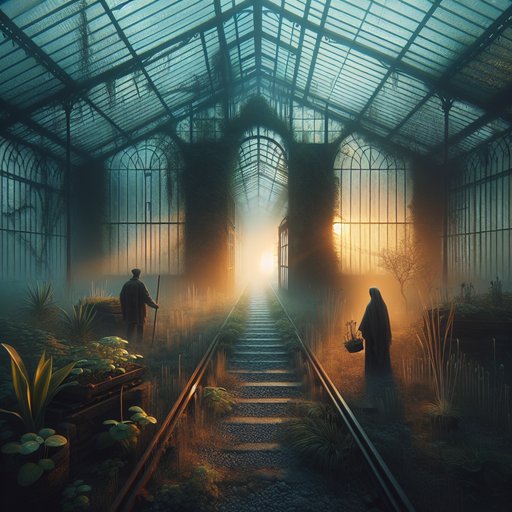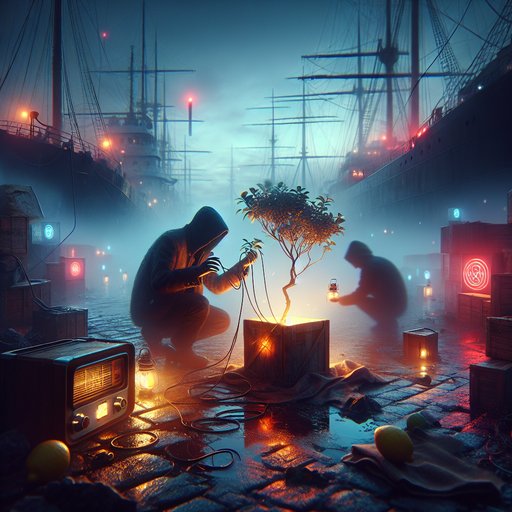
In a winter city where glass sweats and breath turns to fog, two strangers keep finding one another in the greenhouse's humid hush. He tends plants with quiet, earth-bitten fingers. She comes to thaw, to forget the way a foreign alphabet can feel like a locked gate. Their languages do not meet, but their hands do, building a lexicon on skin—two taps for yes, a thumb's slow circle for again, a palm pressed to a sternum for truth. When time threatens to unspool them, they stake their promise in soil, in growing things that do not care what words you speak, only how gently you touch.

At the end of the disused rail line, a forgotten glasshouse exhales damp and memory. Maya and Elias arrive with separate griefs tucked into their pockets—hers, a river; his, a room that fell silent. They come to restore panes and plant seedlings, then discover they are tending something else too: a language without instructions, a way of carrying loss that doesn’t cut the hands that hold it.

On the wind-swept quay of a small harbor, a lantern maker and a cellist teach themselves a language that uses light, wood, and the spaces between breaths. Without a single word, they draw close enough to share storms and misreadings. When hearing dims and the horizon beckons, their rituals of gesture and craft must decide what silence can carry and what must be left to the tides.

In a port city ribboned with smoke and broken glass, two strangers learn the shape of each other’s breath in the minutes between alarms. He keeps the voices alive through wires and static; she packs a history into boxes and keeps it warm with her hands. While the war chews at the edges of everything they know, they find a small tree and a ritual to contain the quiet, and promise to share a single lemon when the noise finally relents.










































